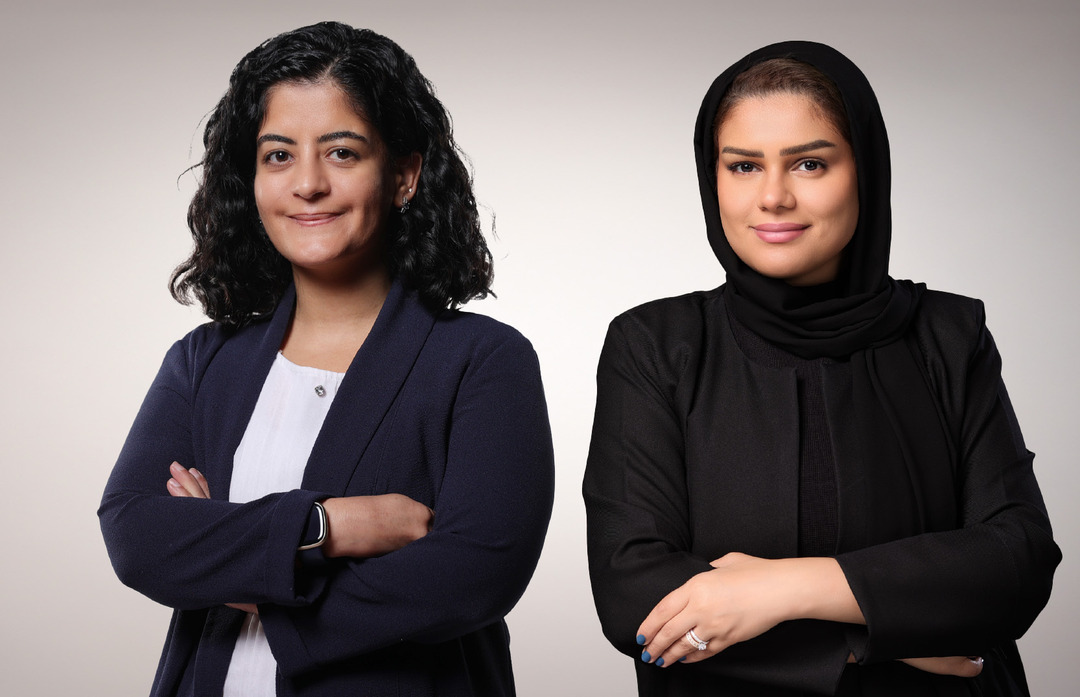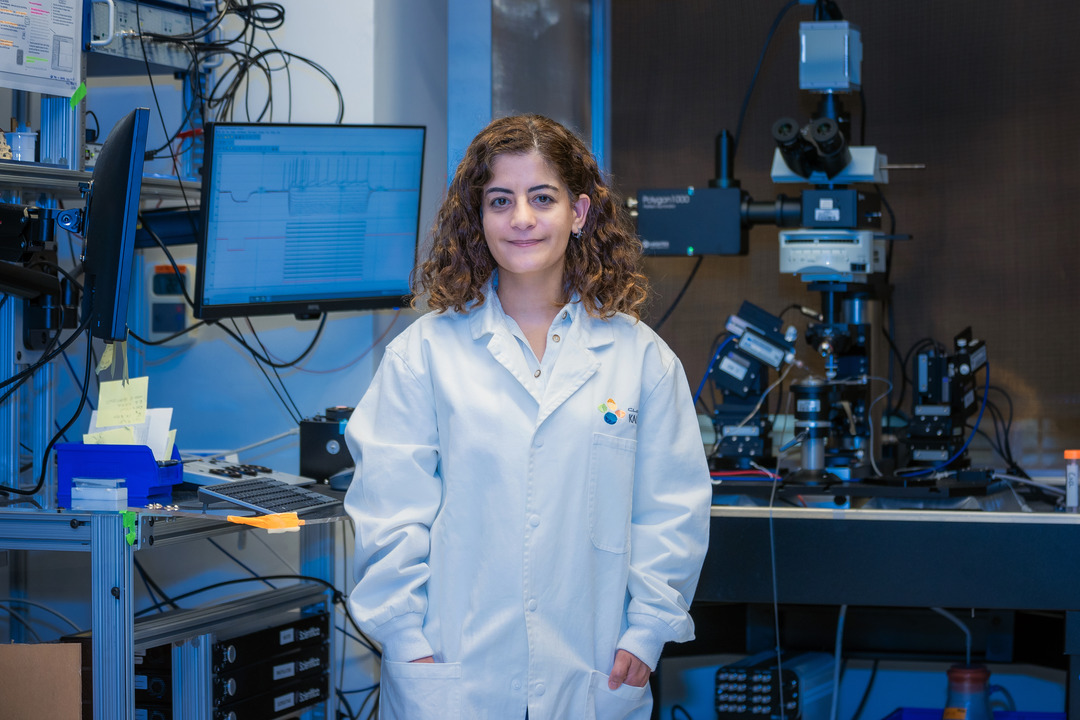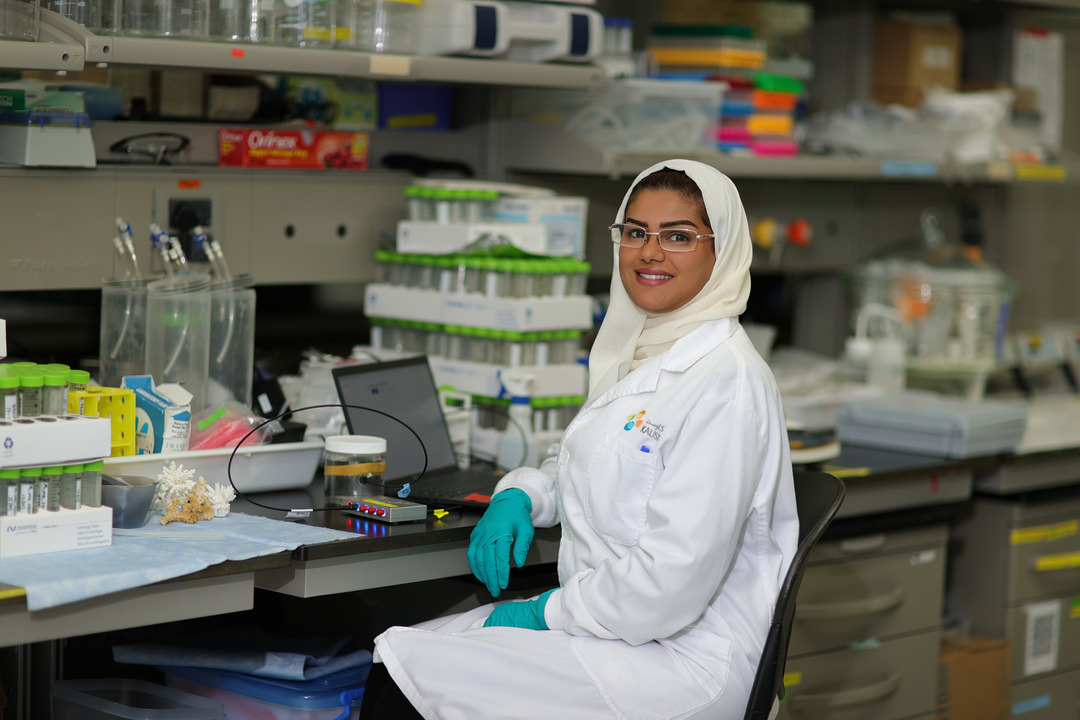Two KAUST researchers named L’Oréal-UNESCO for Women in Science Middle East Young Talents

Leena Ibrahim (left) and Taiba Alamoudi (right) ©️ 2024 KAUST.
Established in 2014, the L’Oréal-UNESCO for Women in Science Middle East Regional Young Talents Program honors six talented young Arab female researchers each year for their outstanding contributions to the life sciences and physical sciences. The program, which recognizes Arab women in two categories – researchers and Ph.D. candidates – was established to promote and support the participation of young women in science. This year, two KAUST researchers, one in each category, secured their place among the laureates: Leena Ibrahim, Assistant Professor in the Bioscience Program, and Taiba Alamoudi, Ph.D. candidate in the Marine Science Program.
Leena Ibrahim joined KAUST in 2021, where she leads the Neural Circuits Lab. She holds a Ph.D. in neuroscience from the University of Southern California, Los Angeles, and completed five years of postdoctoral training in neurobiology at Harvard Medical School before beginning her faculty role.
Ibrahim’s research explores how development and sensory experiences shape the brain’s ability to process information. She aims to understand how the brain creates internal representations of the world by distinguishing between meaningful sensory inputs and distractions, which ultimately guide our behavior. A central focus of Ibrahim’s research is to uncover the role of layer 1 inhibitory neurons in brain development and in integrating sensory and cognitive information. Her team is studying how learning, genetic mutations, and factors such as stress and inflammation affect the formation and modulation of layer 1 synaptic connections.
“These studies are imperative for understanding the molecular blueprint that guides neural circuit formation and function. Disorders like autism spectrum disorders and schizophrenia are often linked with aberrations in cortical processing and synaptic connectivity […] By mapping how sensory and cognitive information is integrated in the cortex, our work can illuminate the neural basis of these abnormalities,” says Ibrahim. She adds: “My research contributes to understanding the brain’s mechanisms in sensory processing, which can lead to better diagnostic tools and treatments for mental health disorders.”

Leena Ibrahim studies how sensory experiences shape the brain’s ability to process and respond to information. ©️ 2024 KAUST
Ibrahim’s passion for neuroscience has deep roots. Of Palestinian origin, she moved frequently during her early childhood and school years, navigating different countries, continents and cultures. This constant adaptation sparked her curiosity about how the brain learns and adjusts to change. The idea of making a difference in both science and society has been the driving force behind her professional journey. Her long-term goal is to apply her research findings to real-world solutions that can transform clinical practice and contribute to the development of treatments for brain disorders. In addition, she is a passionate educator and advocate for increasing women’s presence in science: “I have actively mentored women from Saudi Arabia, Malaysia and Mexico, and I hope to inspire more women to pursue scientific careers. By fostering diversity in my lab, I aim to create an inclusive environment that can drive innovation and growth in science […] Mentoring young scientists gives me a profound sense of purpose. Seeing them succeed and knowing I had a role in their journey is immensely fulfilling,” concludes Leena Ibrahim.
Taiba Alamoudi is a Ph.D. student under the mentorship of Ibn Sina Distinguished Professor Carlos Duarte. She earned her undergraduate degree in marine biology from Oregon State University in 2018 and gained experience in environmental consulting and aquaculture in the Kingdom before joining KAUST in 2020.
Alamoudi’s research focuses on the impact of climate change on coral reef ecosystems in the Red Sea, with particular emphasis on the role of macroalgae in coral health and resilience. Macroalgae, essential architects of reef ecosystems, influence their hosts in one of two ways: they can either support or disrupt marine life. As climate change alters ocean conditions, certain species, like turf algae, proliferate rapidly and become dominant, outcompeting corals for space and resources, hindering coral growth and reducing biodiversity. In contrast, other types of macroalgae provide vital habitats, food sources and shelter for marine organisms, supporting ecosystem health. Alamoudi's work aims to deepen our understanding of macroalgae communities and explore their potential as a nature-based solution to combat climate change. By analyzing their biochemical composition and ecological roles, she believes macroalgae could serve as regenerative habitats, fostering marine biodiversity and building resilient ecosystems. "If we can harness the positive aspects of macroalgae," she explains, "we might unlock new ways to restore marine habitats, supporting both marine biodiversity and the livelihoods of coastal communities".

Taiba Alamoudi’s research focuses on the role of macroalgae in coral health and resilience. ©️ 2024 KAUST
Through collaborations with the National Center for Wildlife and Red Sea Global, Alamoudi’s research also seeks sustainable resources for pharmaceuticals and other bioproducts via metabolomics analysis. Given that macroalgae can sequester carbon, cultivating them could help mitigate climate change by capturing CO₂, enhancing biodiversity and strengthening ecosystems. Alamoudi envisions significant potential for macroalgae farming in Saudi Arabia: "We're studying seaweed biomass to promote investment in Saudi Arabia's regenerative aquaculture, offering both ecological and economic benefits."
Alamoudi’s curiosity about marine biology was sparked by realizing how much of the marine environment remains a mystery, especially in her home country, Saudi Arabia, where the need for such research is urgent and vital. "Marine science is a vast understudied field; there's so much we still don't understand," she says, adding "I want to expand my knowledge and apply it here in Saudi Arabia to make a meaningful impact."
The L’Oréal-UNESCO For Women in Science, through its international awards and regional and national initiatives, aims to celebrate and empower women scientists who are advancing knowledge and developing solutions to global challenges. The recognition of Leena Ibrahim and Taiba Alamoudi, along with the 2023 awards granted to Dana Al-Sulaiman, Assistant Professor in the Material Science and Engineering Program, and Suzana Nunes, Professor in the Environmental Science and Engineering Program, and the 2017 award granted to Niveen Khashab, Professor in the Chemistry Program, highlights KAUST’s commitment to supporting exceptional female scientists at every stage of their careers and its alignment with UNESCO’s vision: “The world needs science and science needs women.”

